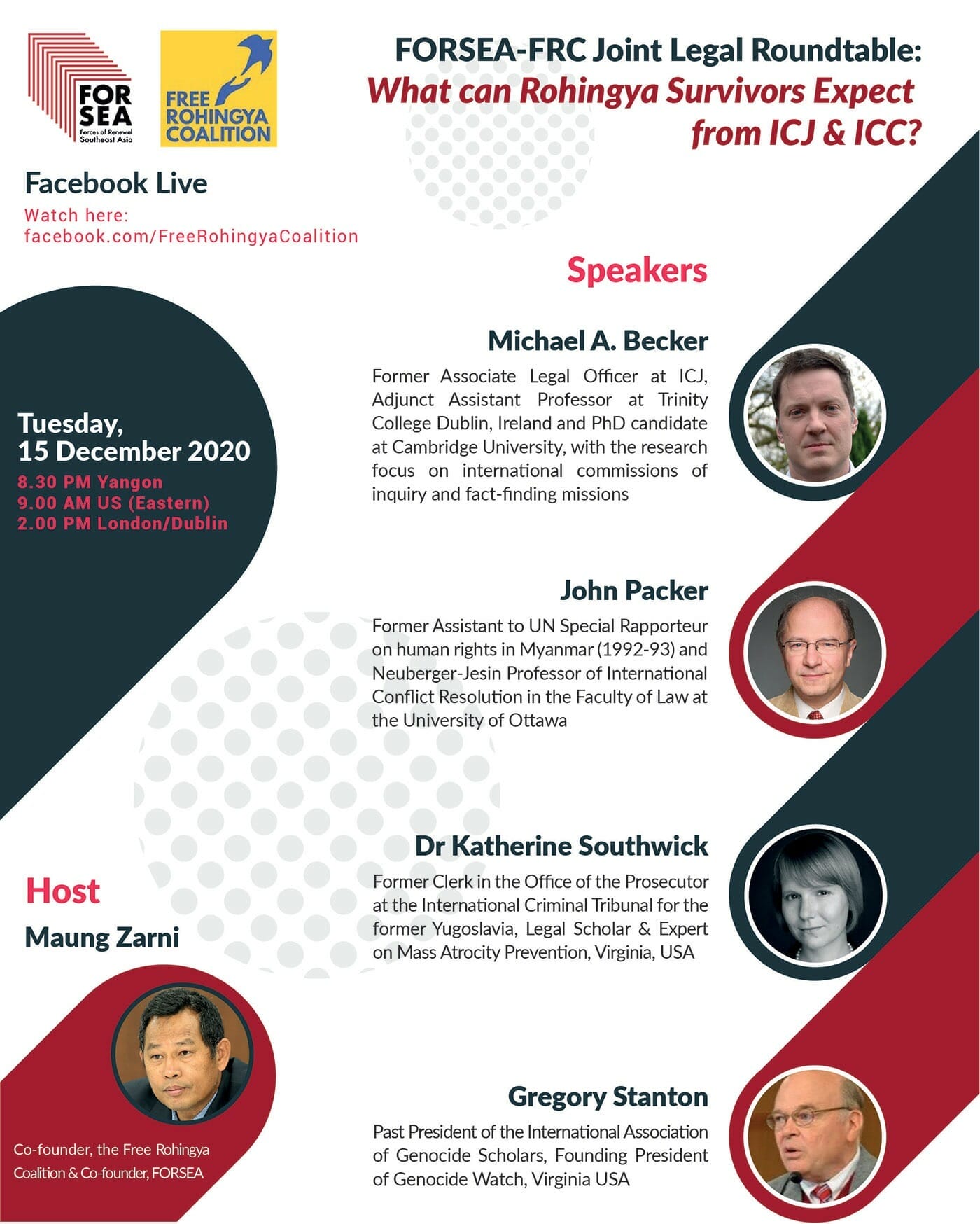Almost one year ago Myanmar State Counsellor Aung San Suu Kyi further shocked the world by travelling to the Hague where in her official capacity as the Agent of Myanmar, she dismissed the genocide allegations and defended Myanmar, particularly her father’s military known as the Tatmadaw in The Gambia vs Myanmar case at the International Court of Court. The weighty, credible evidence of atrocities against Rohingya, gathered painstakingly by the Independent International UN Fact-finding Mission over 18-months, persuaded the judges including Myanmar’s own-handpicked ad hoc judge, to issue a unanimous order that Myanmar protect the evidence of the state crimes against Rohingyas and prevent further genocidal violence against the victims that remain in Rakhine State.
On a different accountability front, the International Criminal Court, also based in the Hague but with the focus on individual accountability of international crimes, has embarked on the full-investigation of Myanmar’s international crimes including the crime of deportation and other crimes which resulted in the exodus of nearly 900,000 Rohingyas, fleeing across the borders
Myanmar has on its part shown no sign of genuine political will to take Rohingya survivors back from the neighbouring Bangladesh nor has created the ground-conditions safe and conducive for the repatriation of the Muslim nationals.
Last week Bangladesh has started its “coercive relocation” of the first batch of Rohingya refugees – over 1,500 out of the intended target of 100,000 Rohingyas – to the cyclone-prone, isolated, never-before-inhabited island of Bhasan Char, 2.5 hours away from the nearest Bangladesh coast in the Bay of Bengal, with no access to international humanitarian or technical support services. Dhaka has launched this $350-mllion relocation scheme in defiance of universal opposition from both human rights and humanitarian organizations and the United Nations itself.
To discuss the harsh realities confronting Rohingya people in Myanmar and refugee camps in Bangladesh, FORSEA-FRC Legal Roundtable brings together a group of leading experts on Rohingya genocide with a wealth of first-hand professional experience in various UN accountability mechanisms including the ICJ, ICC and International Criminal Tribunal for former Yugoslavia.
This group of leading scholars, activists and journalists will share their thoughts on these issues of immense importance.
Join this Event
Date: Tuesday 15th December 2020
Time: 8:30 pm (Yangon) | 9 am (US Eastern) | 2:00 pm London/Dublin
Host: Maung Zarni, Forsea Co-Founder & General Secretary


